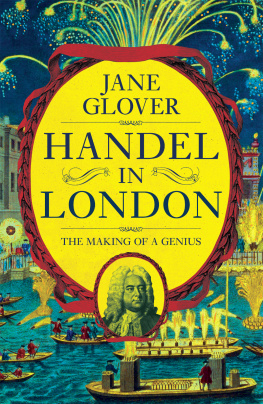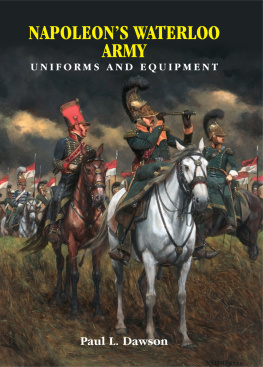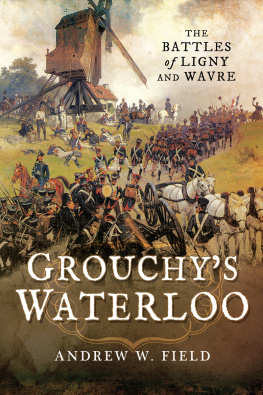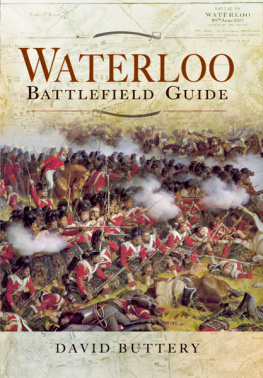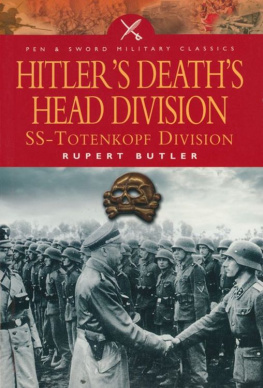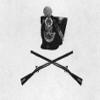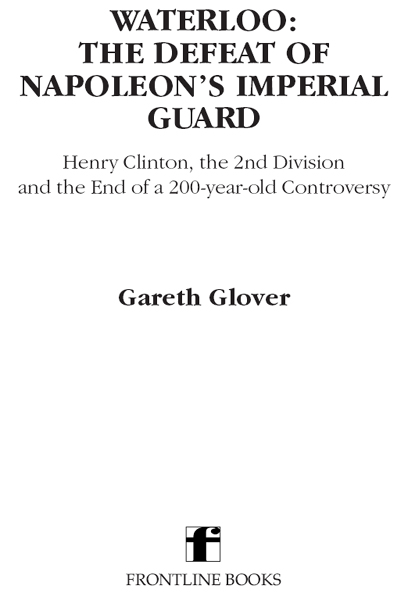

Waterloo: The Defeat of Napoleons Imperial Guard
Henry Clinton, the 2nd Division and the End of a 200-year-old Controversy
This edition published in 2015 by Frontline Books,
an imprint of Pen & Sword Books Ltd,
47 Church Street, Barnsley, S. Yorkshire, S70 2AS
Copyright Gareth Glover, 2015
The right of Gareth Glover to be identified as the author of this work has been
asserted by him in accordance with the Copyright, Designs and Patents Act 1988.
ISBN: 978-1-84832-744-3
EPUB ISBN: 978-1-84832-951-5
PRC ISBN: 978-1-84832-950-8
All rights reserved. No part of this publication may be reproduced, stored in or
introduced into a retrieval system, or transmitted, in any form, or by any means
(electronic, mechanical, photocopying, recording or otherwise) without the prior
written permission of the publisher. Any person who does any unauthorized act
in relation to this publication may be liable to criminal prosecution and civil
claims for damages.
CIP data records for this title are available from the British Library
Printed and bound by CPI Group (UK) Ltd, Croydon, CR0 4YY
Typeset in 10/12 point Palatino
For more information on our books, please email: ,
write to us at the above address, or visit
www.frontline-books.com
Contents
Appendix 1
Evidence of Colonel Hugh Halketts Capture of General Cambronne
Appendix 2
The Controversy of the 52nd
List of Maps
Acknowledgements
A ny book of this complexity requires the help and assistance of others to come to fruition. In this regard I have been very fortunate in receiving the able and willing assistance of the staff at the John Rylands Library on my numerous visits to their Reading Room. I must mention in particular John Hodgson and Dorothy Clayton for their general support of the project and particular help to obtain images from the Clinton files.
With regard to the Beinecke Library in Yale University, I must offer my grateful thanks to Brian Dunnigan for helping me contact the right people, Karl Longstreth who helped me identify the Clinton maps and Anne Marie Menta for her help in providing reproductions of the Clinton material for my use.
Beyond this, the help and advice of the Napoleonic community in general has been gratefully received, particularly through the Napoleon Series Discussion site.
Finally I must as always thank my long-suffering but unbelievably supportive wife Mary and my two grown-up children Sarah and Michael who continue to inspire me. I must particularly thank Michael, who as a history graduate made an invaluable contribution to the book by proof reading it and making a number of suggestions which hugely improved the final version.
Preface
S unset loomed, but the battle raged on; and through the thick haze of gunpowder smoke, occasional glimpses of the indestructible Imperial Guard marching up the soft incline towards the chaotic remnants of the allied front line foretold imminent disaster.
Faintly at first, but slowly getting louder between the irregular discharges of cannon, musketry and the cacophony of battle, the massed ranks of drummer boys announced the attack with the rhythmic drum beat of the pas de charge.
The crash of the Imperial drums, beating with the harsh unity that stamped them as the voices of veterans in war, woke me from my reverie and made my heart throb with their stony rattle. Never did I hear such drums and never shall again: there were years of battle and blood in every sound.
All seemed lost, the British Guards had fallen back in confusion before a second column of these whiskered veterans; this truly was the crisis of the battle.
But at such times, heroes forged of steel grasp their moment and snatch victory from the hands of fate. Colonel John Colborne coolly ordered his regiment in line formation to wheel its face to the left. His battle-scarred veterans obeyed without question and the 52nd Foot wheeled through ninety degrees with the precision of a training ground exercise. The movement was adeptly followed by the remainder of the brigade to garner their support.
Suddenly, through the smoke, the menacing column of French Imperial Guardsmen became visible directly to their front and still marching inexorably for the crest of the ridge ahead, seemingly oblivious to Colbornes men, now facing its vulnerable flank at short musket range.
Colborne recognised the perfect moment and called out for a crashing volley from his men. They did not let him down. The volley of a thousand lead musket balls struck the French column with such venom that it halted in its tracks, and those fortunate to escape injury turned to offer a confused but firm response.
Colbornes men did not hesitate to reload, but gave one lusty cheer and advanced immediately towards the shattered column in a determined bayonet charge. As the British infantry, so obvious in their deep red coats, advanced rapidly with grave determination to see the charge home, the French veterans were forced to make a snap decision, to stand or flee.
Some brave souls stood, but as always, the spirit of those furthest from the actual threat, at the rear and those on the right wing of the column, who were painfully aware of the threat but could not see or face it personally, broke first. The trickle of men fleeing instantly sapped the courage of the majority and soon turned the column into a fleeing mob.
The Imperial Guard had been defeated!
Such had never happened before, and as this news spread like wildfire through an exhausted French army, morale collapsed and they turned tail and fled en masse.
The light infantry brigade, led by Colbornes men, swept, across the field, destroying all semblance of order and any attempts to rally to offer further resistance. Defeat rapidly turned into inglorious rout.
Truly the Light Brigade had swept the field clear of the enemy and had won the battle for Wellington. Or so some historians would claim. But is it all true?
Indeed the absence of a mention of this glorious movement across the field in his despatch after the battle has caused controversy for two hundred years, between the 1st Foot Guards and the 52nd Foot in particular.
This book, using a mass of previously unpublished material regarding the exploits of the Light Brigade, and indeed the entire 2nd Division of which it was one of three brigades under the command of Sir Henry Clinton will seek to put the record straight and not only apportion the glory fairly but also show the faults.
Little has been written about the exploits of this division during the Waterloo campaign beyond Colbornes movement. It is high time that their actions throughout the day, which certainly helped enormously to maintain Wellingtons right wing during the mass cavalry charges, and also their vital support to the defenders of Hougoumont farm are told.
This is their story.
Introduction
S o much has been written regarding the Battle of Waterloo and the campaign of 1815 that readers would be forgiven for thinking that there was nothing else to say. Incredibly, despite the millions of words published on this subject over the last two hundred years, this belief is far from correct. For far too long thousands of pages of primary source material from hundreds of eyewitnesses to the whirlwind events of 1815 have lain virtually ignored in the archives of Europe, until the last decade, when a dedicated group of individuals, including most notably John Franklin, Erwin Muilwijk and myself, have published a huge mass of this material, much for the very first time in the English language. This has forced every historian to seriously re-evaluate their understanding of this campaign and has shown that the story of the battle and campaign which we have grown up with has in many respects been misinterpreted or is quite simply wrong.
Next page





